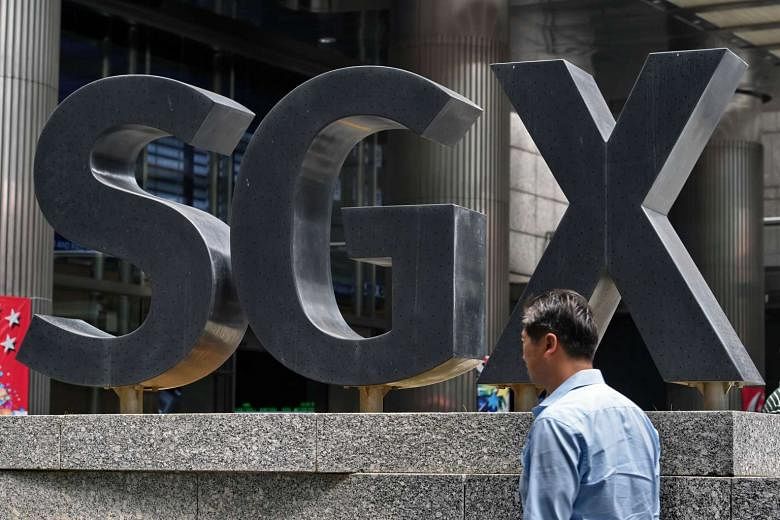SINGAPORE (BLOOMBERG) - It's too soon to bet on a rebound for Singapore stocks, according to Samsung Asset Management, which sees little value in the shares even at the widest discount to global equities in more than a decade.
The benchmark Straits Times Index is poised for a 15 per cent slide this quarter, the most since the throes of the global financial crisis in 2008. The gauge is on the cusp of a bear market, while the MSCI Singapore Index is already in one.
Faltering growth in China and the prospect of higher US interest rates leave shares vulnerable to more losses, according to Mr Alan Richardson, a money manager at Samsung Asset whose South-east Asian equity fund has beaten 96 per cent of peers over five years.
"The growth outlook for Singapore is generally weak due to China's deepening slowdown," he said. "The weakness of commodity prices also had a negative impact on the economy as well as commodity suppliers like Noble Group. Stocks could remain at depressed levels for the next six to 12 months unless we see an improvement in these factors."
Singapore's industrial production sank 7 per cent in August from a year earlier, figures showed last week, after reports this month on retail sales and exports also missed estimates. China is the city-state's biggest trading partner.
The Straits Times Index is heading for a fifth monthly decline, the longest losing streak since November 2008. Commodities trader Noble is the Straits Times Index's worst performer this year, while Golden Agri-Resources is also down more than 30 per cent.
"The concern is how much impact China's economic slowdown and the slump in commodity prices would have," said strategist Mixo Das at Nomura Holdings in Singapore. "Singapore has a big exposure to commodities and that doesn't help the market."
A private Chinese manufacturing gauge fell to the lowest in 6 1/2 years, a report showed last week. The nation's declining appetite for energy, metals and other resources will hurt commodity-focused export economies, the Asian Development Bank said on Sept 22.
Morgan Stanley is staying optimistic. The city-state is its most preferred market in South-east Asia, Singapore-based strategist Hozefa Topiwalla said in a Sept 14 report, citing low valuations and attractive dividend yields. Shares on the Straits Times Index offer investors a forecast dividend yield of 4 per cent, compared with 2.8 per cent for the MSCI All-Country World Index, data compiled by Bloomberg show.
The MSCI Singapore Index trades at 1.1 times the value of its companies' net assets, compared with a multiple of 1.9 on a measure of global equities. The gap between the two widened last month to the most since February 2004.
Benchmark gauges for Malaysia, Thailand, Vietnam and Indonesia trade at a price-book ratio of at least 1.7, data compiled by Bloomberg show. While Singaporean stocks fared worse this quarter than those in neighbouring markets, all the equity measures are down as the Federal Reserve's plan to raise interest rates spurs investors to pull cash out of emerging assets.
"In terms of valuations, the Singapore market looks oversold," said Mr Kelvin Tay, chief investment officer for Southern Asia-Pacific at UBS Group AG's wealth management unit in Singapore. "It should be due for a technical rebound but for that to actually happen, you need this region to actually improve. Singapore is viewed as part of the Asean region and Asean is struggling at this point."

